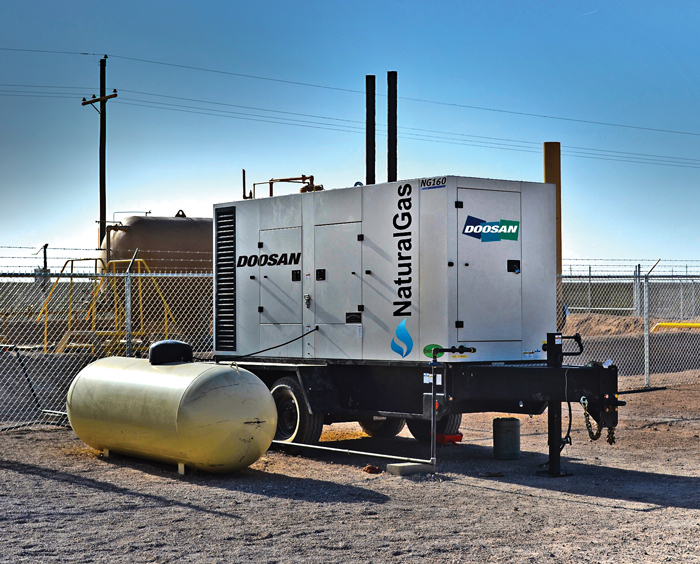In an increasingly energy-conscious world, the search for reliable and sustainable power solutions is more critical than ever. Natural gas generators have emerged as a popular and versatile choice, providing a clean, efficient, and readily available source of electricity. This article explores the benefits and advantages of natural gas generators, shedding light on why they are becoming a preferred option for a wide range of applications.
Clean and Environmentally Friendly
One of the primary reasons for the growing popularity of natural gas generators is their environmental friendliness. Natural gas, composed primarily of methane, burns more cleanly than other fossil fuels like coal or oil. When combusted, natural gas releases significantly fewer pollutants and greenhouse gas emissions, such as sulfur dioxide, nitrogen oxide, and particulate matter. As a result, natural gas generators contribute to improved air quality and help mitigate the impacts of climate change.
A 3 phase generator is an essential component in many electrical systems, particularly in industrial and commercial applications. Unlike single-phase generators that produce a single alternating current (AC) waveform, three-phase generators generate three separate AC waveforms, each offset by 120 degrees from the others. This configuration allows for a more balanced and efficient distribution of power, reducing voltage fluctuations and improving overall system stability. Three-phase generators are commonly used to power large motors, machinery, and equipment in industries such as manufacturing, construction, and mining. They also play a vital role in supplying electricity to utility grids, where three-phase power is the standard for transmitting electricity over long distances. With their ability to deliver consistent and reliable power, three-phase generators are indispensable in keeping operations running smoothly across a wide range of industrial and commercial settings.
Efficiency and Cost-Effectiveness
Natural gas generators are renowned for their high energy conversion efficiency. Unlike traditional power plants that generate electricity and waste heat, natural gas generators harness the waste heat and convert it into useful thermal energy, resulting in combined heat and power (CHP) systems. These cogeneration systems achieve overall efficiencies of up to 90%, making them significantly more efficient than separate electricity and heat generation methods. The increased efficiency translates to lower fuel consumption, reduced operating costs, and improved energy sustainability.
Reliability and Versatility
Reliability is a crucial factor when it comes to power generation. Natural gas generators offer excellent reliability due to the extensive natural gas infrastructure in many regions. With a constant and uninterrupted supply of natural gas, these generators can provide a stable source of power for various applications. Natural gas generators are commonly used in residential buildings, commercial establishments, industrial facilities, and even as backup power during emergencies. Their versatility allows them to cater to a broad range of energy needs, making them a flexible solution for different environments.
Reduced Noise and Vibration
Noise pollution and vibrations are common concerns associated with power generators, especially in urban and residential areas. Natural gas generators address these concerns by offering significantly reduced noise and vibration levels compared to diesel or gasoline generators. This makes them ideal for installations where noise control is a priority, such as hospitals, schools, and residential neighborhoods. The quiet operation of natural gas generators ensures minimal disruption while delivering reliable power.
Compatibility with Renewable Energy
As the world transitions towards renewable energy sources, natural gas generators play a crucial role in supporting this shift. Their ability to start quickly and operate efficiently makes them an ideal backup option for intermittent renewable energy sources like solar or wind. Natural gas generators can quickly compensate for fluctuations in power output from renewables, ensuring a consistent and reliable electricity supply. This compatibility fosters a hybrid energy approach, combining the benefits of clean natural gas with the sustainability of renewable sources.
Conclusion
Natural gas generators have emerged as a reliable, efficient, and environmentally friendly solution for power generation. With their clean burning capabilities, high efficiency, and versatility, they provide a compelling alternative to traditional fossil fuel-based generators. As we strive for a greener and more sustainable future, natural gas generators offer a bridge between conventional energy sources and the increasing integration of renewable energy systems. By harnessing the power of natural gas, we can achieve reliable electricity supply while minimizing our environmental footprint.
James Martin is a passionate writer and the founder of OnTimeMagazines & EastLifePro. He loves to write principally about technology trends. He loves to share his opinion on what’s happening in tech around the world.


